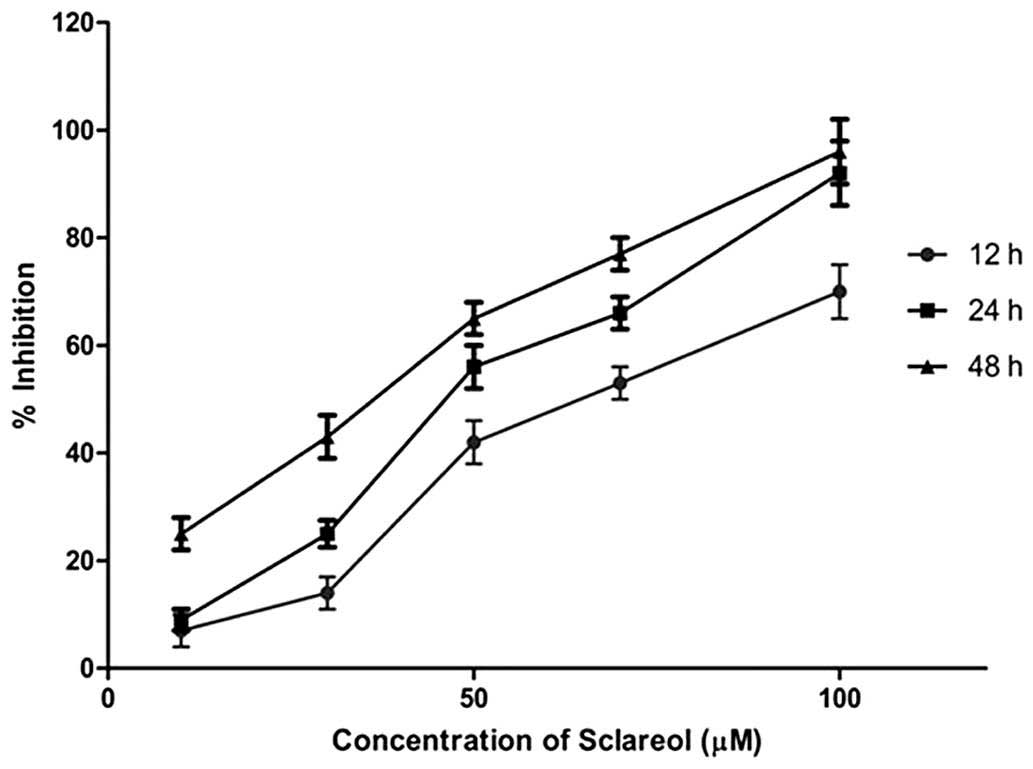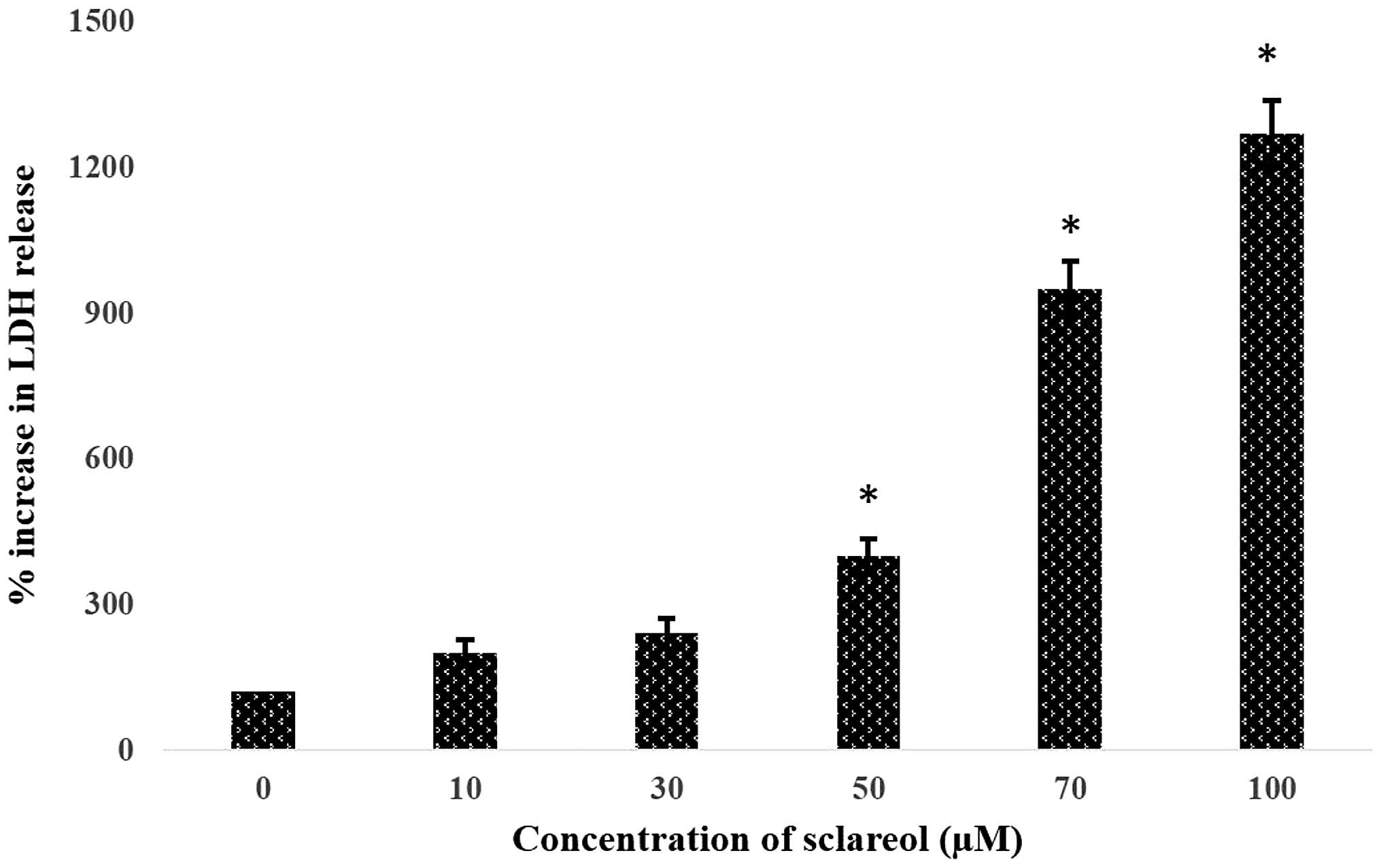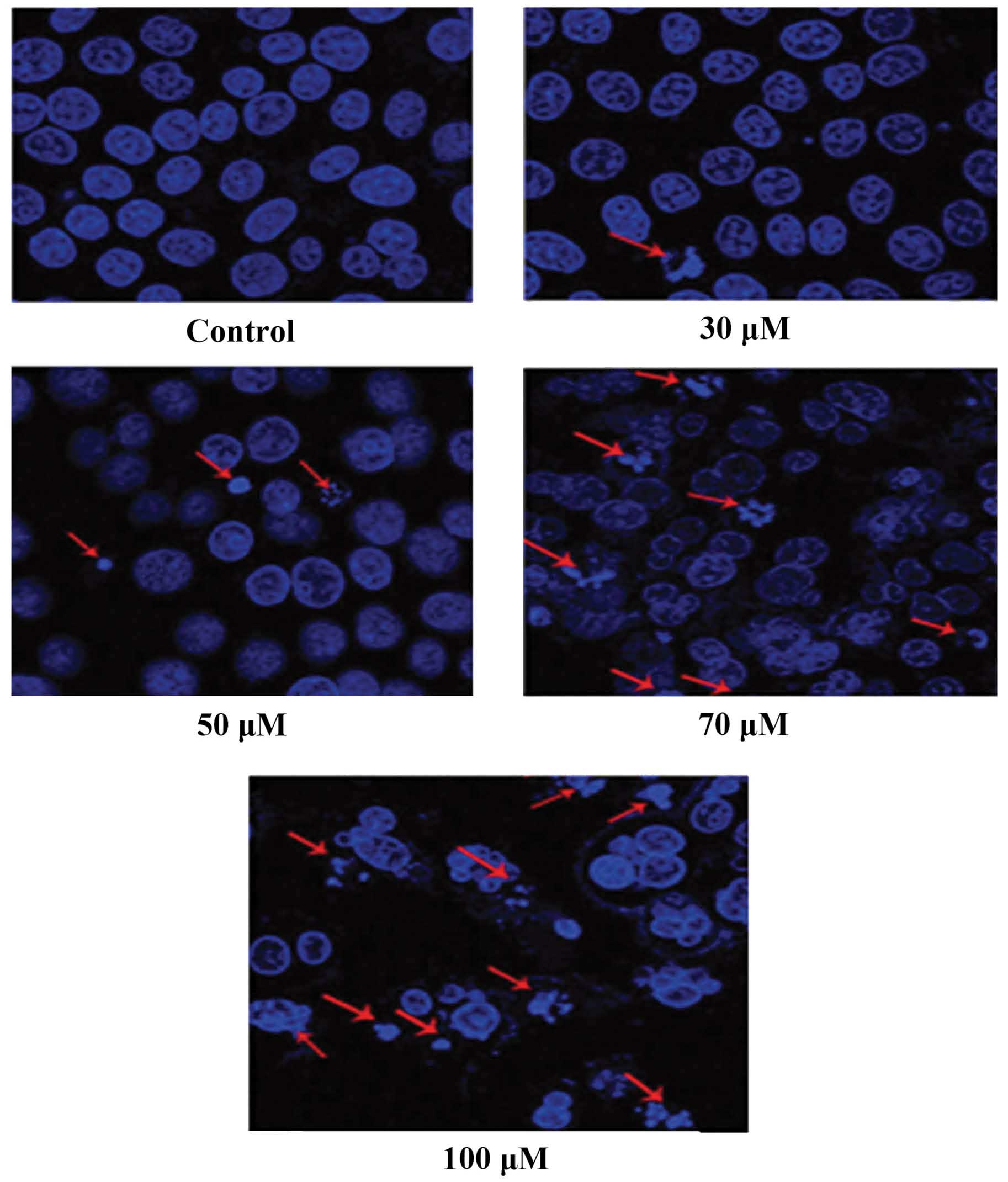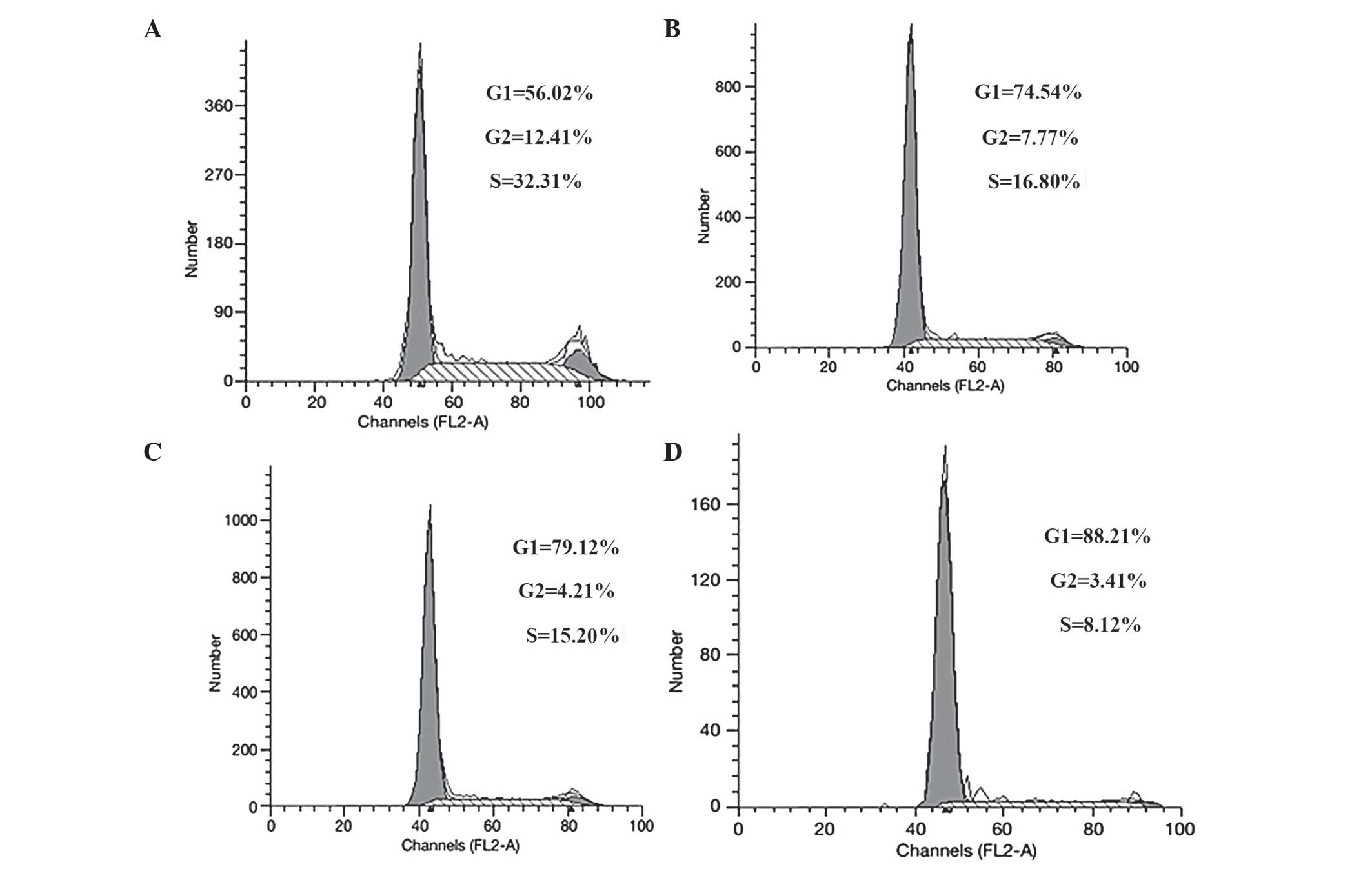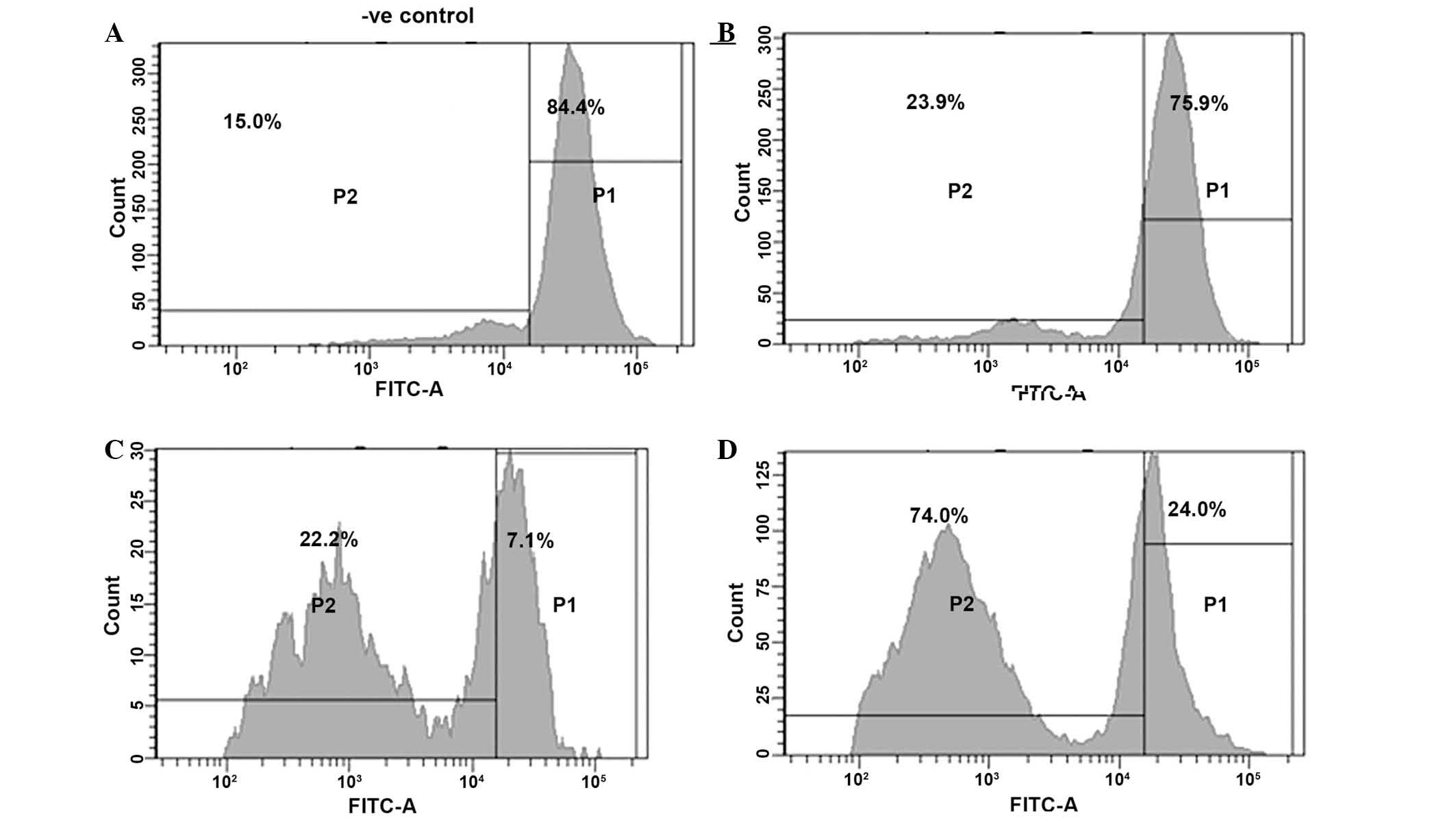Spandidos Publications style
Wang L, He HS, Yu HL, Zeng Y, Han H, He N, Liu ZG, Wang ZY, Xu SJ, Xiong M, Xiong M, et al: Sclareol, a plant diterpene, exhibits potent antiproliferative effects via the induction of apoptosis and mitochondrial membrane potential loss in osteosarcoma cancer cells. Mol Med Rep 11: 4273-4278, 2015.
APA
Wang, L., He, H., Yu, H., Zeng, Y., Han, H., He, N. ... Xiong, M. (2015). Sclareol, a plant diterpene, exhibits potent antiproliferative effects via the induction of apoptosis and mitochondrial membrane potential loss in osteosarcoma cancer cells. Molecular Medicine Reports, 11, 4273-4278. https://doi.org/10.3892/mmr.2015.3325
MLA
Wang, L., He, H., Yu, H., Zeng, Y., Han, H., He, N., Liu, Z., Wang, Z., Xu, S., Xiong, M."Sclareol, a plant diterpene, exhibits potent antiproliferative effects via the induction of apoptosis and mitochondrial membrane potential loss in osteosarcoma cancer cells". Molecular Medicine Reports 11.6 (2015): 4273-4278.
Chicago
Wang, L., He, H., Yu, H., Zeng, Y., Han, H., He, N., Liu, Z., Wang, Z., Xu, S., Xiong, M."Sclareol, a plant diterpene, exhibits potent antiproliferative effects via the induction of apoptosis and mitochondrial membrane potential loss in osteosarcoma cancer cells". Molecular Medicine Reports 11, no. 6 (2015): 4273-4278. https://doi.org/10.3892/mmr.2015.3325















